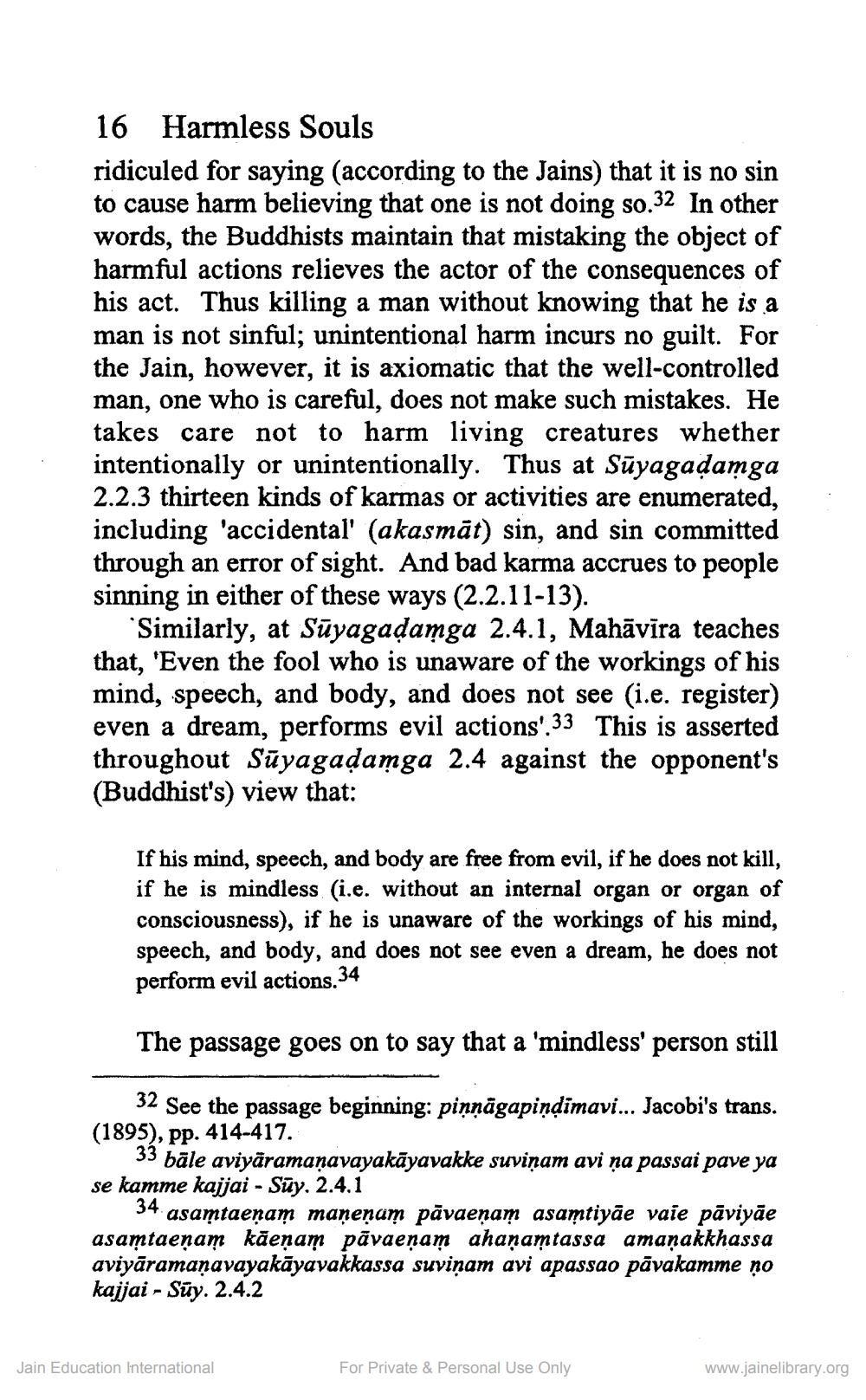________________
16 Harmless Souls ridiculed for saying (according to the Jains) that it is no sin to cause harm believing that one is not doing so.32 In other words, the Buddhists maintain that mistaking the object of harmful actions relieves the actor of the consequences of his act. Thus killing a man without knowing that he is a man is not sinful; unintentional harm incurs no guilt. For the Jain, however, it is axiomatic that the well-controlled man, one who is careful, does not make such mistakes. He takes care not to harm living creatures whether intentionally or unintentionally. Thus at Sūyagadamga 2.2.3 thirteen kinds of karmas or activities are enumerated, including 'accidental' (akasmāt) sin, and sin committed through an error of sight. And bad karma accrues to people sinning in either of these ways (2.2.11-13).
*Similarly, at Sūyagadamga 2.4.1, Mahāvīra teaches that, 'Even the fool who is unaware of the workings of his mind, speech, and body, and does not see (i.e. register) even a dream, performs evil actions'. 33 This is asserted throughout Sūyagadamga 2.4 against the opponent's (Buddhist's) view that:
If his mind, speech, and body are free from evil, if he does not kill, if he is mindless (i.e. without an internal organ or organ of consciousness), if he is unaware of the workings of his mind, speech, and body, and does not see even a dream, he does not perform evil actions.34
The passage goes on to say that a 'mindless' person still
32 See the passage beginning: piņņāgapiņdimavi... Jacobi's trans. (1895), pp. 414-417.
33 bāle aviyāramaņavayakāyavakke suviņam avi ņa passai pave ya se kamme kajjai - Sūy. 2.4.1
34 asamtaenam maņenam pāvaenam asamtiyāe vaie pāviyāe asamtaenam kāenam pāvaenam ahanamtassa amanakkhassa aviyāramanavayakāyavakkassa suviņam avi apassao pāvakamme no kaijai - Sữy. 2.4.2
Jain Education International
For Private & Personal Use Only
www.jainelibrary.org




